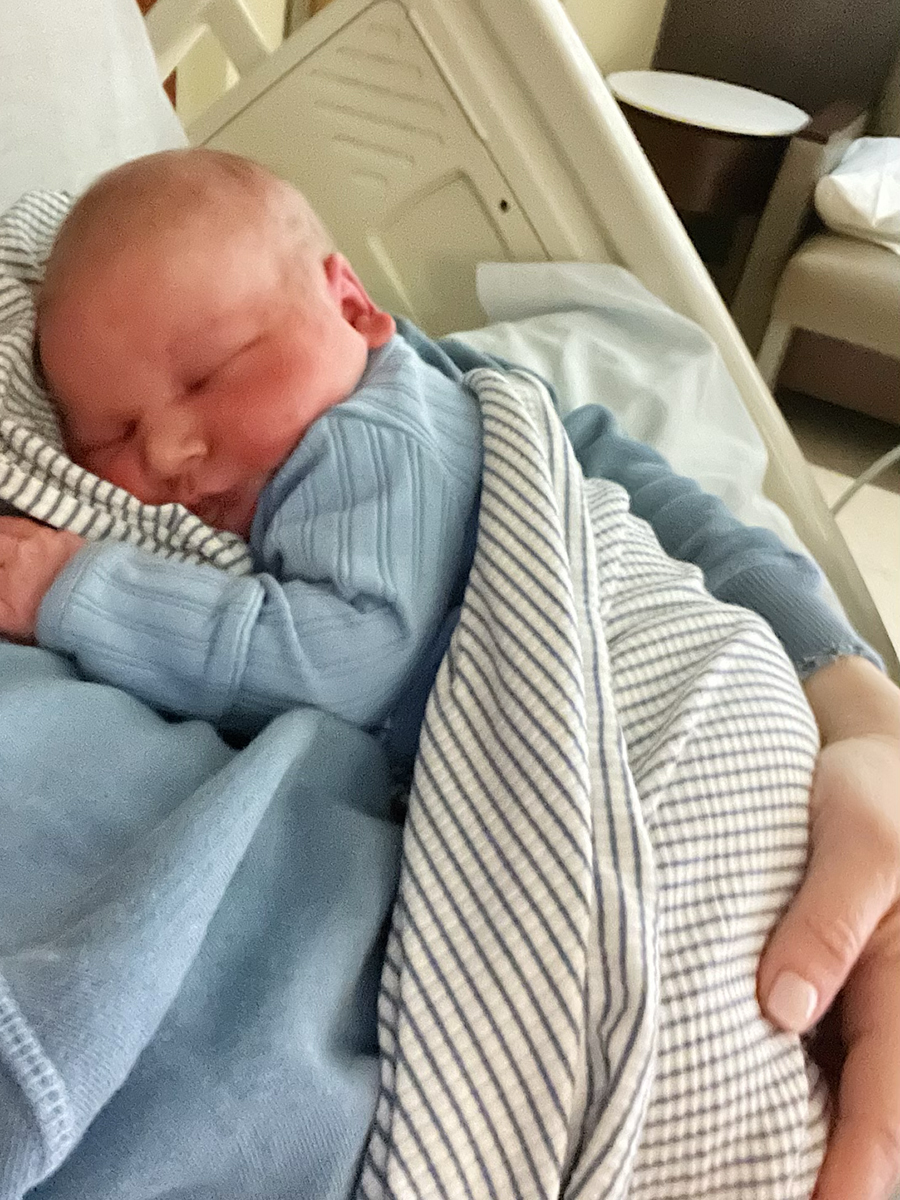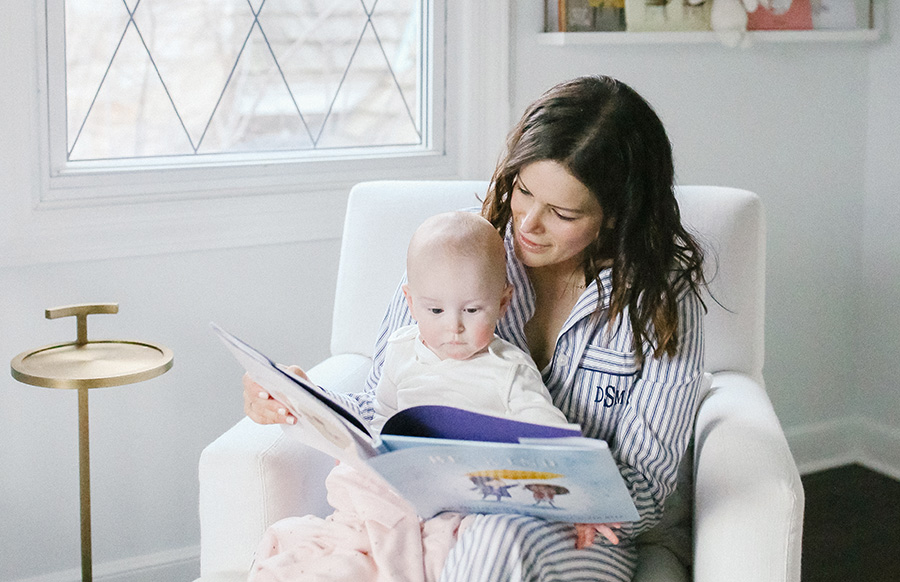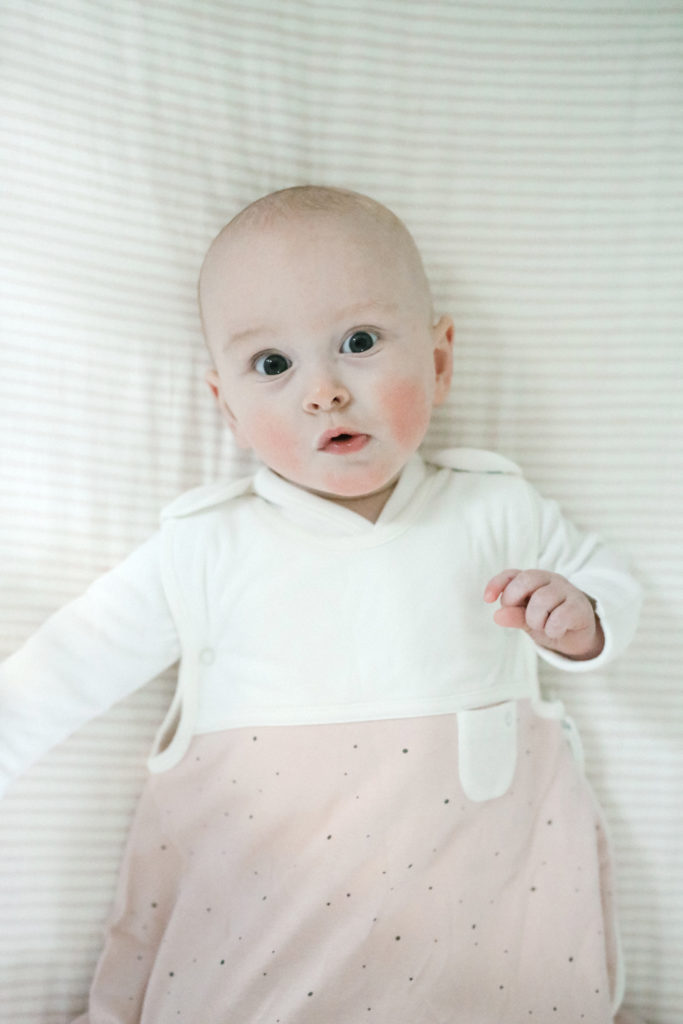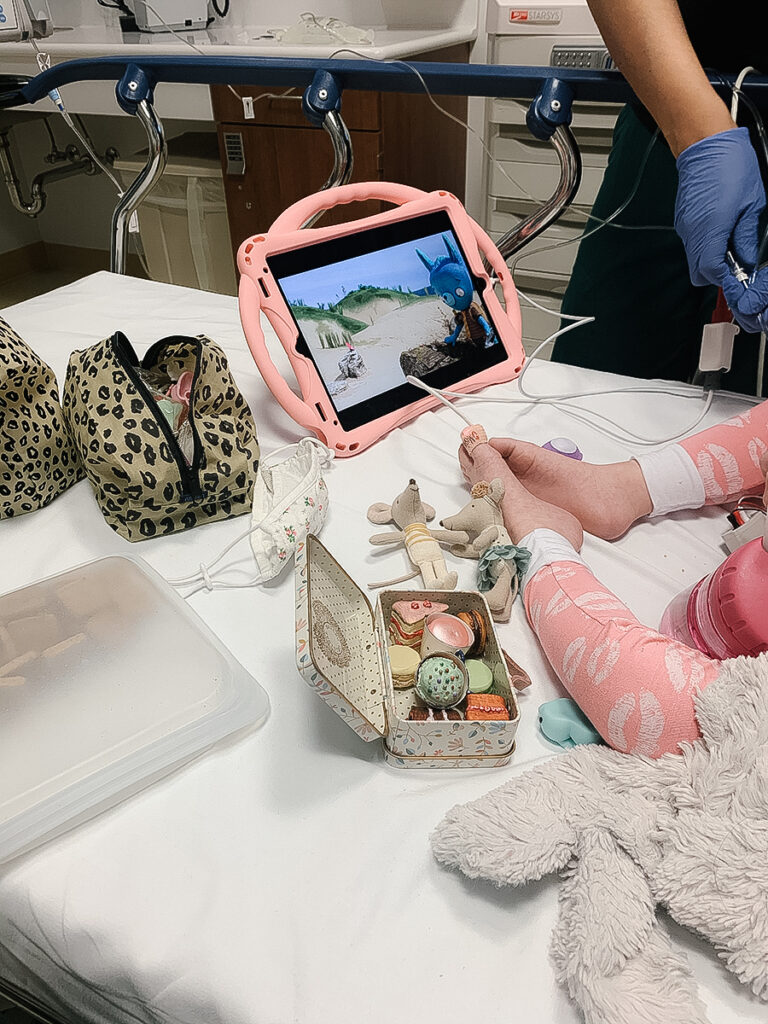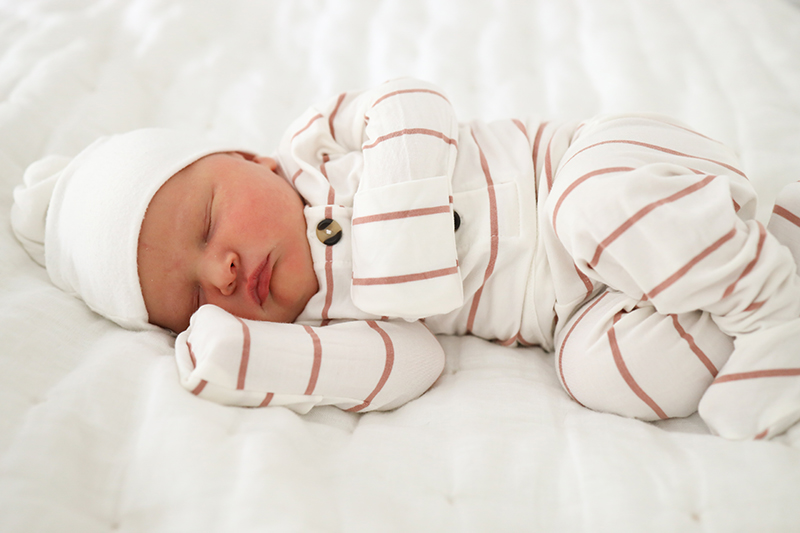Motherhood
Moms Share Their Postpartum Stories
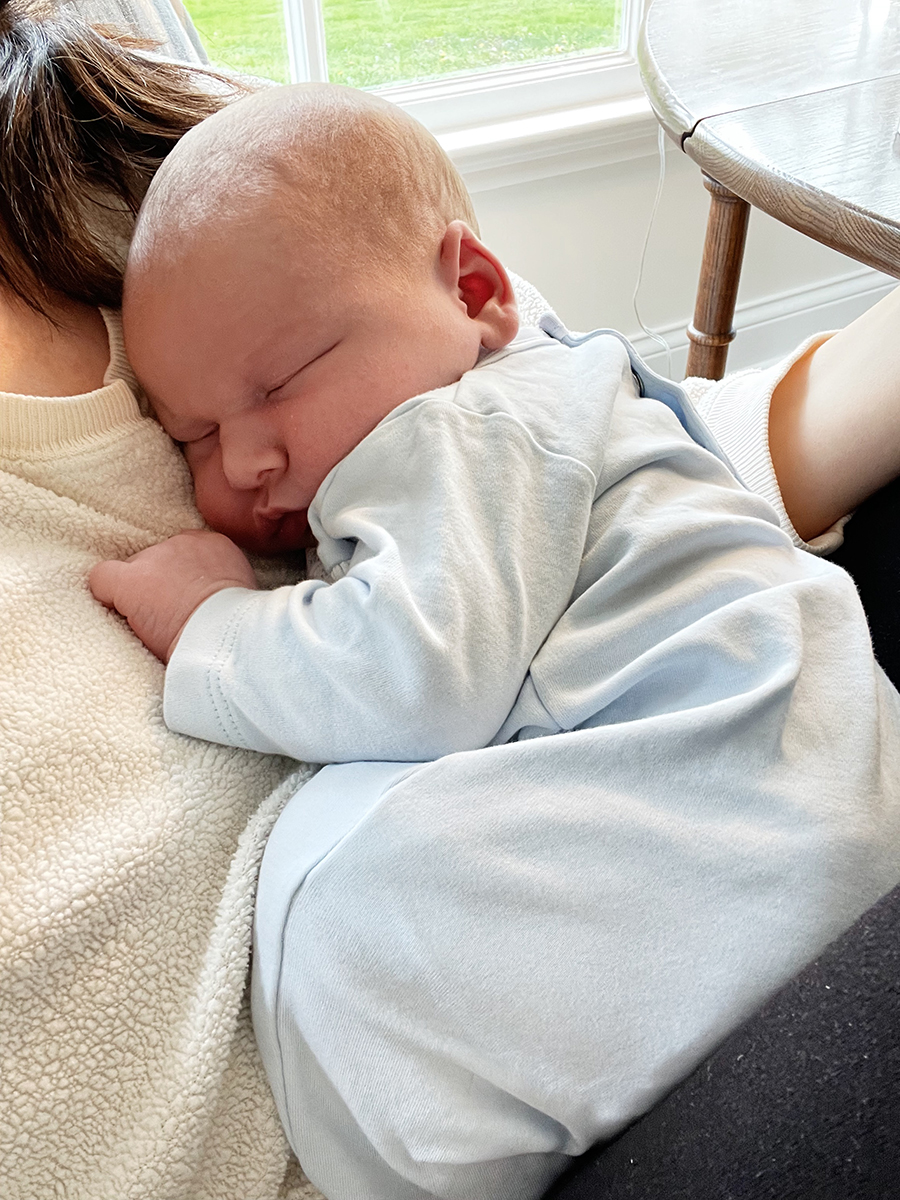
When I hemorrhaged 8 days after having my third baby, I found myself terrified and alone at the hospital. Had I known more (or anything) about hemorrhaging, I could have felt a little less alone. After sharing my story, I received message from a follower suggesting that others share their stories and experiences as well. Almost 75 submissions later, I want to share some of these stories with you. Not with the intention of fear mongering. We all came together to share our stories and information with the hope of helping those of you who might experience something similar. Had I read a story like mine, I would have felt a lot less afraid. Most of us had no idea what was happening to our bodies, and we want to change that for you. Here are some of our postpartum stories.
Moms Share Their Postpartum Stories
When I first shared that I hemorrhaged, I apologized. I called my experience TMI but quickly realized that’s not the case. This isn’t TMI, it’s healthcare. I hope that by sharing these stories, we’ll feel empowered. That we will know more. And most important, we should never forget to call, ask questions, and to advocate for ourselves.
Postpartum preeclampsia
About 3 days after birth, 1 day being home, my feet swelled immensely. I chalked it up to fluid after giving birth. I started to have trouble breathing, just like a chest heaviness, but again, 3 days postpartum and my body just went through a lot and I had a newborn and a toddler, so I pushed on. My mom convinced me to call the OB and the nurse dismissed me. She also thought it was postpartum fluid build up causing both symptoms. My Mom took my blood pressure (she’s a nurse) a couple days later and it was 160/80-ish.
The doctor was concerned and said it’s likely postpartum preeclampsia and to get blood work to see how my liver enzymes were reacting, etc. I got a call that they were too high and to immediately head to the OB triage floor at the hospital to be treated. By the time I got there my bp was now at 185/90ish. Anything over 160 is severe and anything over 170 can cause a stroke.
“Curing” Preeclampsia
The “cure” for preeclampsia is to have the baby, so postpartum preeclampsia is such a mystery to doctors. My blood pressure was perfect all pregnancy. It wasn’t until I delivered the baby that it spiked and my symptoms began. Terrifying. I spent 36 hours in the hospital on a magnesium drip (all while pumping for my newborn baby at home, my husband was a saint) and started blood pressure medication that stabilized my bp until the pregnancy hormones left my body, about 4-6 weeks later, and I could wean off the medication.
I really want to spread the word to watch for high blood pressure symptoms after delivery/getting home. If we save even one person from getting to that stroke-level blood pressure range, sharing this story will be worth it.
Postpartum Anxiety
My story is not unique, most mothers experience a long labor with their first child. I left the hospital completely depleted, overstimulated, and absolutely in love with my healthy baby girl. I was everything and nothing all at once.
At home, my heart raced and the adrenaline surged around the clock. The sleep deficit was trumped by an overwhelming fear that I would fall down the stairs or unintentionally roll over my infant while asleep. Threatening and absurd thoughts were top of mind. I did not feel like myself, physically or emotionally. I passed a large clot and asked my dad, my caretaker at the time, to take me to the emergency room.
After the postpartum hemorrhage, physicians ordered tests and labs while I nursed my baby. Medication was administered to contract my uterus and stop the bleeding. This helped, but the anxiety persisted acutely for months. Two lives were dependent on my ability to stay calm and be honest. I had to swallow some pride and remain vulnerable. So, I showed up to my doctor appointments, cried with my lactation consultant, joined a breastfeeding group, phoned friends and accepted help from strangers. I found a community and heard similar stories.
Experiencing postpartum trauma
Ultimately, my postpartum trauma provided me with an invaluable lesson: I have permission to trust myself. 23 months later, I was blessed with another healthy daughter. This time I was confident in my experience and shared my story from prenatal visits to my hospital discharge. My care team closely monitored me until I was ready to go home. I prioritized sleep and cleaned less, and took it slow and asked for more help. I spoke openly with my partner and my doctors which led me to begin prescription drug treatment to curb the anxiety.
The entry to motherhood looks different for everyone. Our society often overlooks the magnitude of change new mothers experience in a short timeframe. My strength is a direct correlation of my struggle, and I would choose this journey again every time.
Perinatal Depression
Our first daughter was born during Covid times, and looking back I probably displayed a lot of the symptoms but was unable to get properly diagnosed. When my daughter was born I immediately felt a sense of relief and calmness that is hard to describe. A few years later we found out we were pregnant with our second daughter and I felt all the same symptoms that I felt during my first pregnancy.
I brought these concerns up to my new OB/GYN who was able to properly diagnose the physical symptoms as Hyperemesis Gravidarum. We tried together to help combat a lot of the physical symptoms and were successful for the most part. But I began to feel a sort of loom and sadness regarding my pregnancy. I wasn’t going to harm myself in anyway but I knew it was out of character. During this time, I had a very busy toddler, and it was becoming increasingly difficult to care for the both of us. My doctor asked me questions regarding my mental health. We then came to the conclusion that along with my diagnosis of HG, I most likely had perinatal depression.A large percent of women who are diagnosed with HG are also diagnosed with Perinatal Depression.
I was under the assumption that depression only happens postpartum when in fact, it can also happen during your pregnancy.
With the new diagnosis, there was this sense of failure before my child was even born. I had a lot of questions regarding how to help my mental health. Would I have to be medicated? How would this affect my unborn child? I wanted to make sure that I maintained a positive attitude with my toddler and husband. And of course, maintain some sort of happiness throughout my pregnancy.
Finding peace
With my OB/GYN and a therapist, I was able to find joy, love and peace, regarding my pregnancy and every day life. My therapist said it best – “you know yourself better than anyone else.” If you feel that you are acting or feeling out of character, speak up. Tell anyone: tell your partner, parents, a friend, or OB. Just tell someone.
Us moms need our village. We need support during pregnancy and after. I’m very thankful that I spoke up to my OB and got the help I needed. I’m also very grateful that my doctor took my words and symptoms serious so that I could enjoy my final pregnancy and birth. The minute our second daughter was born, there was a sense of peace, healing and calmness. My pregnancies were difficult and not the norm, but I wouldn’t trade them for anything.
Starting a Family Later in life
Third Degree Tear and Stitches Opening
I had a third degree tear with both of my pregnancies. With my first pregnancy, a stitch or two opened after a week. When I looked in a mirror, I saw the wound was open in one small part. This was really upsetting after the trauma of a complicated birth. I went in to see my OB thinking it could be re-stitched. She cleaned it and said it’ll heal and recommended more sitz baths. I found these really difficult to make time for after my first.
After another day or two, it looked more open and I felt worse, so I went in and got another opinion from a different doctor. That doctor agreed that it needed to be repaired in case it was breaking down deeper beneath the surface. He scheduled me to have the tear re-stitched. The procedure was done under general anesthesia which was scary but I felt so much better after. Those doctors were fabulous and said they cleaned all the wounded skin up in addition to re-stitching and repairing the deeper skin/muscle. It was an awful day (because we waited 12 hours, meanwhile I was trying to establish nursing so I kept my baby and husband with me at the hospital the whole day).
It was so worth it in the end to feel good about my healing process rather than being told it’s fine to feel like a mess down there. My body had already changed so much in the process of pregnancy and L/D so I wanted to at least feel like I was healing well postpartum and taking care of myself.
Clicking the Epidural Button a little too often
I went in after laboring naturally a day after my due date, got the epidural early, and I pressed the button for self-dosage WAY too much IMO (I maxed it out). When it was time to push, I felt absolutely nothing and wrecked myself with almost a 4th degree tear and temporarily paralyzed my bladder. I ended up on a catheter for 24 hours, which they kept removing to have me try to urinate naturally and putting it back in. I ended up cancelling everyone who was going to come visit (except for Grandparents) and my first 24 hours were just so painful. Thankfully my bladder “woke back up” and I was able to be cleared to go home without a catheter. Almost 5 years later I still have some bladder issues.
I had shared my fears with my doctor and she had recommended to me to not push the button at all with my second. I had SUCH a better epidural experience and felt so much more (in a good way!) and was so controlled. My postpartum healing was night and day the second time around.
Postpartum Dehydration
My third baby was one week old and I woke up at midnight shaking uncontrollably and severely. I was terrified and called 911, went to the hospital in an ambulance. Had a 102.9 fever when I got there and was hooked up to all the machines. I thought I was going to die – I asked every doctor and nurse that came in if I was! Diagnosed was severe dehydration (they *think*). Fever and extreme chills continued for 3 days then gone.
I wasn’t taking proper care of myself.
In general I drink so much water (like 5 Stanley’s a day) and I just wasn’t at the time. I was exhausted from labor and newborn life, breastfeeding (which is dehydrating in itself, which I didn’t even realize) a very big and hungry baby and trying to still spend time with my two other kids. The hospital visit made me realize I needed to stop trying to do everything for everyone and just try and take care of myself. So I let myself just lay in bed with the baby, accept help, and really rest and recover. I stocked every spot I nursed the baby (the rocking chair in his room, the couch downstairs, my bed) with bottles of smart water, Gatorade and granola bars. I wish I had done that right when I got home from the hospital with him!
Postpartum UTI and painful sex
I ended up in the ER about 2.5 weeks postpartum with a kidney infection. My symptoms were: the urge to pee every 10-15 minutes, , fever and chills, lower back pain/tenderness, and vomiting. I was probably in denial that something was wrong.
It turns out that I had a UTI (I just thought that you peed a lot after having a baby. Plus I’d never had a UTI) that turned into a kidney infection. My mother in law felt my forehead and said I was “really burning up” so I called my OB and she directed me to the ER. Temp was over 104 when I got to the ER. I spent two nights there (including my first Mother’s Day ) and then was released.
Noticing the signs
When I noticed signs of a UTI after having my second baby, I immediately called my OB and asked (pretty much demanded) her to prescribe me an antibiotic. Thankfully, she did! Advocate for yourself and don’t ignore signs that something in your body may be off! I know it feels like you’re living in a fog postpartum, but it’s so important to pay attention to your own body as much as you’re caring for your baby.
I cannot stress how critical paying attention to your own body is after having a baby. You get all of these check-ups and all of this education while pregnant, and then boom! You’re left alone for six weeks without seeing a doctor. That needs to change.
ALSO, three words: pelvic. floor. therapy. After both girls, it hurt like hell to have sex. I couldn’t. It turns out that my pelvic floor muscles were so tight from carrying a baby that NOTHING could get in there. Luckily, my OB recognized this (I was not dismissed!) and referred me to a pelvic floor therapist. I had weekly sessions for about a year (after each baby) where the therapist massaged inside and outside that area. I had “exercises” to do at home too. Eventually, things got back to normal. Pilates is also great for pelvic floor health.
Retained Placenta
With my first, I had a seamless pregnancy and delivery. Immediately after my son was born, my doctor became really extremely focused and had a very serious look on her face. I had no idea what was going on and considering it was my first I was pretty clueless to everything in general. It turns out part of my placenta broke apart and I was hemorrhaging (retained placenta). I was Super lucky my doctor caught it right away and she started to administer injections and other medications while she and a team of doctors worked on helping clear the placenta to save my life.
It was about an hour straight of me heavily hemorrhaging and wondering if I was going to make it as my newborn lay in the room and my husband stood there in complete shock & fear. At one point he had to leave the room and go explain to his parents and mine what was Happening as they were in the waiting room.
My point in sharing this is not to create fear, but because I think it’s important to know this can happen.
Not all doctors will catch it so it’s so Important to pay attention to your body and how you’re feeling. Ask questions if you have any concerns. Monitor your body while you’re recovering. Call out any unusual bleeding. Don’t be afraid to ask about anything even if it seems so minor!! I was also very vocal about this happening during my 2nd pregnancy so my doctors could be prepared during that delivery. Fortunately it didn’t happen that time, but I am currently pregnant again and I will continue to be vocal this time around too.
Retained Products of Conception, or (RPOC)
Almost nine years ago, after a fairly typical pregnancy, my daughter was born via vaginal delivery. As far as I knew, the post-birth experience was normal, and I vaguely remember delivering the placenta in the midst of the new baby excitement. I can’t remember if it was my first night in the hospital or my second, but at some point I got up to take a shower and passed a very large (as I recall it was the size of my fist) blood clot.
My husband called a nurse, who helped me clean up and checked me out, but did not seem overly concerned. It was definitely something I had not experienced during my first pregnancy, and overall I felt okay, so I trusted her. It did not happen again while I was in the hospital, and we went home to start our lives as a family of four. Looking back, this was maybe my first sign that something might not be right.
Recovery and bleeding
Overall my recovery was normal, aside from the fact that my bleeding was not getting lighter as the days and weeks went on as it had with my first baby. In fact, I was still bleeding steadily at my postpartum checkup. Although not “typical”, my doctor told me that bleeding can last up to twelve weeks after giving birth. I thought I was just unlucky this time around and the bleeding was not ideal, it was more of an inconvenience than anything else. However, almost seven weeks post birth, I woke up and started bleeding fairly heavily. Unfortunately it was Labor Day (go figure) and my doctor was not in the office. She told me to watch the bleeding and if it did not get lighter throughout the day, to call her back. Fortunately it did, but I made an appointment to come in the next day.
Finding out I had RPOC
The doctor did an ultrasound and discovered I had Retained Products of Conception, or (RPOC). Basically, this meant that there were parts of the placenta that did not come out after birth, which was causing my body to continue to bleed. I had NO IDEA that this actually was a possibility and we had two options, medication or surgery. I chose medication first as the least invasive option and was sent home with a prescription and an appointment a few days later for a follow up ultrasound.
Unfortunately, after two rounds of medication did not work, my doctor determined I would need to go into the hospital for an outpatient D&C procedure to remove any remaining material. The surgery was fairly quick, and thankfully successful. I was feeling back to normal and the bleeding stopped the next day. I am sharing this story to raise awareness. Even though this condition is rare, it does happen and I wish I had known in order to better advocate for myself and to ask the right questions sooner when it happened to me.
Recurring Ovarian Cysts
I have always been prone to ovarian cysts, and during my first pregnancy in 2021/2022 they found a 7cm cyst on my right ovary. It grew rapidly, and I was not informed that there was an option to have it removed. We just had to monitor the growth throughout the pregnancy. It caused me a lot of pain, especially because my job required a lot of long car travel and it was so hard as I got larger. My anxiety was so high that the cyst would cause torsion or rupture. I opted to be induced at 39 weeks because I was in pain and having panic attacks. Ultimately I ended up needing a c-section and they also removed the cyst at the same time.
I got pregnant again in fall of 2022.
I went to the hospital at 8 weeks when I felt a similar pain. They found a new cyst regrowing where the other had been. Apparently dermoid cysts (the kind I had), usually grew 1 cm a year. But mine was already 4 cm in less than a year since it was previously removed. Since we found it early, they gave me the option of having it removed at 16 weeks. Although the idea of having surgery while pregnant was scary, I was more concerned about missing the safest window to have it removed and then suffering complications. I’m now 29 weeks and so glad I made the decision to have the surgery and trusted my instinct to get checked.
Moms Share Their Postpartum Stories
Hemorrhaging at Birth
I hemorrhaged after vaginal birth- no one would believe me (even with my wife begging nurses to help and us pleading for my doctor to come check on me). My OB wouldn’t come back for nearly 3 hours while I bled out, and I lost my entire blood volume/had an emergency hysterectomy/ended up on life support.
My number one piece of advice is to advocate for yourself is notice how you’re treated before delivery. Do not stick with the OB you are seeing if you are feeling generally dismissed by them. During my appointments with most of the doctors I saw in the practice, most of my concerns were downplayed, ignored or dismissed. I even asked about hemorrhaging during one appointment and what she would do if that happened and she said “that’s for me to worry about, not you”.
Also when in the hospital, as crazy as it sounds, do not hesitate to make a scene to get help.
After delivery (which I did without an epidural) I was in excruciating pain. It was way worse than childbirth – they told me it was normal for a second birth and ignored my pain. I kept speaking up and saying I felt awful, I was obviously bleeding a lot and I knew something was not right. I threw up from the pain. My wife was panicking watching nurses come and go and minimize what was happening and what ended up saving my life was her making a scene.
She finally ran into the hallway with the baby (a big no no to take the baby in the hallway) and refuse to leave until the doctor came to see me.
Do not be afraid to remind your doctors of what you are allergic to or how you’re feeling.
When they took me to the OR they forgot I couldn’t have an epidural because my blood pressure was too low so they worked on me for a while without anesthesia thinking I still had my epidural. Eventually when nothing was working in the OR they needed to give me blood and all my veins were collapsing and I tried to speak up about where my good veins are etc. The real hero that day was the anesthesiologist who finally got a central line in my neck so I could receive blood.
Lastly, tell your family what you want. Who should stay with baby and who should be with you if something happens. We didn’t have this plan and I was in the ICU on life support for a while and couldn’t speak. I think my family did their best but it would have helped them and me if they knew my wishes.
Placenta Previa
I had placenta previa (a low lying placenta that covers your cervix) with my second. As a result, I ended up on the antepartum floor because I was bleeding at 33 weeks. It was so unclear what was “enough blood” to go to the hospital. On my third trip to labor and delivery at 34.5 weeks due to bleeding. I had an emergency c section.
It was first diagnosed at my 20 week ultrasound.
You have every other week follow up ultrasounds because as your uterus grows your placenta can move to a safer spot. At every ultrasound, my doctor and ultrasound techs kept saying “it could move” so I thought it was fine. Just in case it didn’t, I scheduled a c-section because a vaginal birth is not possible with placenta previa. Fast forward a few weeks and I saw some bleeding. My dr was great and told me to go in right away. The triage doctors were a little less great. They kept asking about how much blood and questioning what I was saying. I know they had the best intentions, but I didn’t know the answers.
When you go into labor and delivery with placenta previa for the first time they give you steroid shots to speed up baby’s development because it’s likely you will be back. They can’t check for dilation because it’s dangerous and could cause more bleeding, but you’re likely starting to dilate. I had my baby at 34.5 weeks and he did not need to spend any time in the NICU. But I spent several scary nights in antepartum and had several trips to and from the hospital. I just wish there had been more clarity and information throughout the process.
Postpartum Gallstones
About 8 weeks postpartum, I was 400 miles from home visiting family with my husband and new baby. We celebrated my FIL turning 70 and while putting our new baby to bed, I experienced excruciating abdominal pain. I finally went to the ER after 6 hrs of pain. There, I diagnosed with a severe gallbladder infection, 8 gallstones, and complete blockage of my bile duct. I spent another night in the hospital and had 2 procedures (ERCP, laparoscopic removal) within 36 hrs of each other.
Talk to your doctor or seek care right away if you experience severe pain in the lower right side of the abdomen (lower right quadrant). The PA in the ED knew exactly what was wrong when i presented.
Intrahepatic Cholestasis of Pregnancy (ICP)
I developed a not well-known condition called ICP (intrahepatic cholestasis of pregnancy) affecting my liver during both my pregnancies. The condition is harmful to both mother and child. Many OBs are not familiar with the condition and misdiagnosis or mistreat it. Most notable symptoms are intense itching that does not go away with anything over the counter, dark urine, and right upper quadrant pain.
I was lucky enough to be followed by Fetal/Maternal medicine. My doctor knew what to look for and how to treat it, but no everyone is so fortunate.
In my 2nd trimester, I experienced persistent right upper quadrant pain. My doctor immediately worked me up for ICP, but my bile acid levels were under the threshold of 10. I had other complications during my pregnancy, on top of a chronic illness. I didn’t present with itching right away (the hallmark symptom).
The upper quadrant pain lingered throughout my 2nd and 3rd trimesters and I began itching around the 34/35 week mark. My doctor retested for ICP based on the new symptom. We began treatment immediately upon diagnosis. My doctor scheduled my delivery for 37 weeks and gave me a medication. The medication they prescribe does not help alleviate the itch, nor does any other prescription or over the counter medicine. Many patients, myself included, itch to the point of bleeding because it is so intense. The itching stops almost immediately after delivery. Patients (again, myself included) can develop cyclical itching with their menstrual cycle for years afterwards. My son is turning 10 in July and it’s still something I get occasionally.
Vaginal Prolapse
I had a vaginal delivery for my son, now 11 months old. By around the four-week mark following the birth of my son, I knew something didn’t feel quite right. I jumped onto google and began searching my symptoms. Upon seeing my OB at my six-week checkup – and to my great relief – he ruled out a pelvic organ prolapse. I then had an appointment with a women’s physiotherapist who confirmed I had a grade 2 (moderate) prolapse.
Most people have not heard of this condition.
Google will be able to tell you more about it than I am able to. It’s where the bladder, uterus or bowel protrudes into the vagina. At 37, I wear a pessary and have to live with this condition for the rest of my life.
I can’t stress enough the importance of exhausting every question on your list when seeing you OB, and of asking about all the potential risks of both vaginal and c-section births. If it’s an option, I would also recommend seeing a women’s physiotherapist both during pregnancy and post-partum.
I have a lot of work to do to come to terms with the birth trauma I have experienced (and continue to experience), but I hope this helps someone feel less alone.
High Blood Pressure
In the last weeks of my pregnancy, my BP went from being normal to low to on the high side. My OB told me to call the office right away if it was greater than 140/90.
My blood pressure during and after labor was similar to what it had been in the week prior to delivery. I didn’t end up needing any medication while in the hospital. My gut was telling me that something wasn’t right. But I rationalized myself into not calling because I wasn’t technically meeting criteria. I didn’t want to bother anyone with what I thought were silly questions.
I mustered up the nerve to call to ask whether it was too high.
The nurse confirmed that only one of the two numbers had to be at or above the threshold. I didn’t have symptoms, the doctor told me to keep an eye on things and check in two days later. The numbers were the same at that two day follow up. A different doctor on call told me that I was fine didn’t need to check anymore.
The next morning, I woke up with a headache that felt like a migraine.
I took Tylenol and Advil but they didn’t help much. My BP was 135/102. When I called the office they told me to come to the emergency room (not OB triage). Had I received oral BP meds as an outpatient earlier in the week, I could have prevented this.
Just like high blood pressure outside of pregnancy, postpartum hypertension is a risk factor for heart disease. My OB said I should still tell my doctors about my hypertension as part of my medical history. Trust your instincts and do not be afraid to call your doctor.

